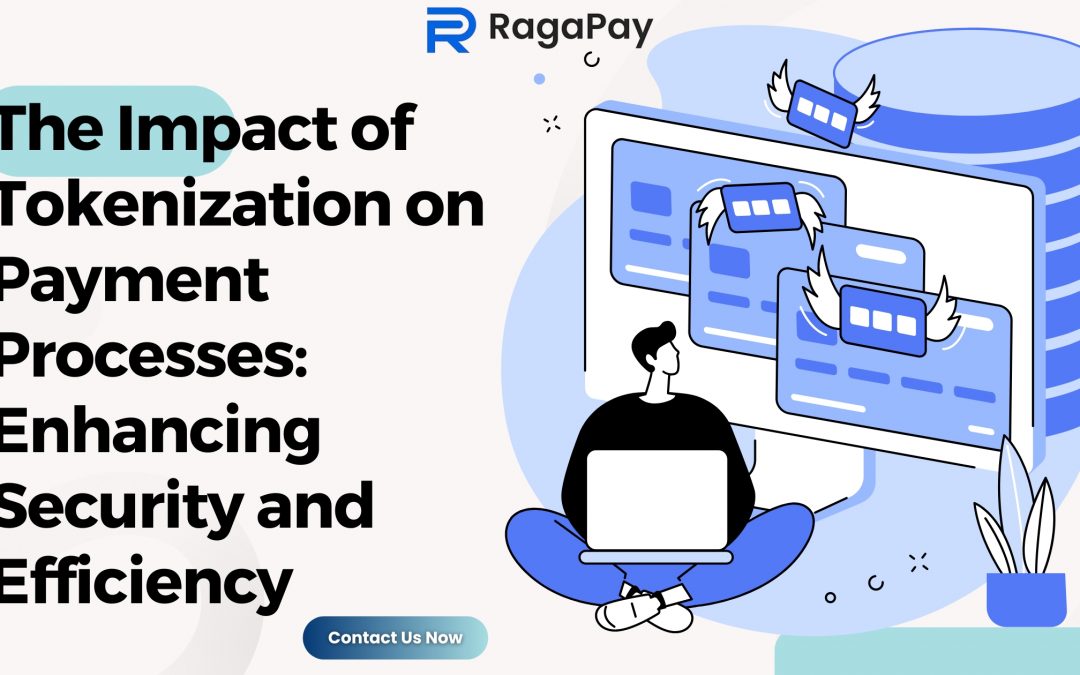Introduction
In today’s rapidly evolving digital economy, ensuring the security of payment processes is more critical than ever. With the rise in cyber threats and data breaches, protecting sensitive financial information has become a top priority for businesses and consumers alike. Tokenization is one of the leading technologies driving this change, revolutionizing the way payment processes are secured. In this blog, we’ll explore the impact of tokenization on payment processes and how it’s shaping the future of digital transactions.
What is Tokenization?
Tokenization is a process that replaces sensitive payment information, such as credit card numbers, with a unique identifier known as a token. This token is a randomly generated string of characters that has no intrinsic value or connection to the original data. The token can be used in place of the actual data for processing transactions, but it is meaningless to hackers or anyone who might intercept it.
Unlike encryption, which scrambles data and can be decrypted with the right key, tokenization completely removes the original data from the transaction. The sensitive information is stored securely in a token vault, separate from the token itself, ensuring that even if a token is compromised, the actual data remains safe.
Enhanced Security
One of the most significant impacts of tokenization on payment processes is the enhancement of security. By removing sensitive information from transactions, tokenization reduces the risk of data breaches and fraud. Even if a token is intercepted during a transaction, it is useless without access to the token vault where the actual data is stored.
For businesses, this means a significant reduction in the risk of costly data breaches. Tokenization also helps companies comply with industry standards and regulations, such as the Payment Card Industry Data Security Standard (PCI DSS), which requires strict protection of cardholder information.
Reduced PCI DSS Compliance Scope
Tokenization can also simplify compliance with PCI DSS by reducing the scope of data that needs to be protected. Since sensitive payment data is no longer stored on a merchant’s servers, the number of systems that fall under PCI DSS requirements is significantly reduced. This not only lowers compliance costs but also minimizes the complexity of securing payment processes.
Improved Customer Experience
Tokenization contributes to a smoother and more secure customer experience. For example, when customers store their payment information with a merchant, tokenization allows them to make future purchases quickly without having to re-enter their payment details. The token, which represents the customer’s payment information, can be stored securely by the merchant and used for future transactions, providing a seamless checkout experience.
Additionally, tokenization enables secure mobile payments and digital wallets, which are becoming increasingly popular. Services like Apple Pay and Google Pay rely on tokenization to protect users’ payment information, allowing consumers to make contactless payments with confidence.
Streamlined Payment Processes
By reducing the amount of sensitive data that needs to be managed, tokenization can streamline payment processes for businesses. The tokenization process is often integrated into existing payment systems, allowing for easy implementation without major disruptions. This can lead to faster transaction times and a more efficient payment process overall.
Furthermore, tokenization supports advanced payment features, such as recurring billing and subscription services. By securely storing tokens instead of actual payment data, businesses can offer these services without the risk of exposing sensitive customer information.
Global Acceptance and Interoperability
As it becomes more widespread, its global acceptance and interoperability continue to grow. Tokenization is being adopted by payment processors, card networks, and financial institutions around the world, making it easier for businesses to implement and maintain a secure payment system across different markets. This global acceptance also helps in reducing fraud rates in cross-border transactions, further enhancing the security and reliability of international payments.
Conclusion
Tokenization is a powerful tool in the ongoing effort to secure payment processes in an increasingly digital world. By replacing sensitive payment information with meaningless tokens, businesses can significantly reduce the risk of data breaches and fraud, simplify PCI DSS compliance, and improve the customer experience. As tokenization continues to gain traction globally, it will play an essential role in shaping the future of secure, efficient, and seamless payment processes.
For businesses looking to enhance their payment security and streamline their operations, tokenization offers a robust solution that is well worth considering.

